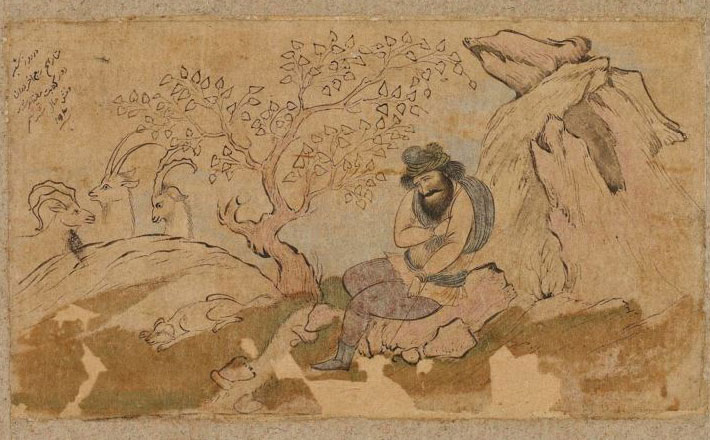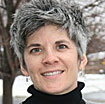Commentary on Psalm 23
Notice this Psalm’s emphasis on our active Lord.
In this one Psalm, the Lord is shepherd, host and priest. Shepherding is hard work; constant work, at least. Minimally, it requires skills in leading, restoring, comforting, remaining present, preparing meals, and anointing.
It is no wonder that Bobby McFerrin’s musical “commentary” on this Psalm is a dedication to his mother (McFerrin even changes the pronouns of the psalm from “he” to “she.” “She makes me lie down in green meadows . . . She restores my soul.”) Psalm 23 plainly reveals a God who loves and cares for God’s children like one who has carried a child in her very womb cares for that child. So, thanks to Mr. McFerrin, I will add to the list above; the Lord is shepherd, host, priest, and mother.
Before reading on, I encourage you to listen to the performance of McFerrin’s rendering of Psalm 23 performed by the male ensemble, Cantus. (http://www.youtube.com/watch?v=91TbjlaS4kc).
In addition to adding “mother” to the list above, listening to this piece of music provides me with a number of other discoveries about the Psalm. First, the pace encourages me to slow down as I engage the Psalm. It is a temptation to race through the reading, especially with such a familiar biblical text. But the gorgeous, lingering chords in the music remind me to linger with the poetic phrases in the Psalm itself.
The first line of the musical piece, “The Lord is my shepherd, I have all I need,” takes its time, even elongates the word “need.” This same phrase of the music provides a second new awareness about the Psalm; there is such a long pause after “need” and before the next line that one might think that is all there is to say. Indeed, the climax of the Psalm is the first line; because the Lord is our shepherd, we have all we need … period. This alone makes for a thoughtful Easter sermon theme!
Third, McFerrin captures the Psalmist’s grateful confidence that is sustained throughout the Psalm. Notice how while the Hebrew does not repeat the word ‘ak in verse 6, McFerrin repeats the word “surely.” Doing so captures the confident sense of the whole Psalm. Combine this with the grateful stance of the Psalmist as he acknowledges what the Lord has done for him and one is led to some profound homiletical potential.
In Psalm 23, we not only find out about the one who is expressing thanksgiving, but the one about whom and to whom thanksgiving is being expressed. Psalm 23 is about God just as much as it is about the Psalmist. Better said, it is about the relationship between the Psalmist and God.
This is yet another possible angle for the preacher to take in the sermon. Encourage your hearers to consider how their speech about God reflects their relationship with God. Do they speak about God in ways that express their gratitude for all God has done (as modeled in verses 1-3, 6)? Do they express their thanksgiving directly to God (as modeled by the Psalmist in verses 4-5)? How might your sermon model both?
If you and/or your congregation are inclined to engage a more traditional hymn than Bobby McFerrin’s music, some of these points also arise from Isaac Watts’ hymn based on this psalm, “My Shepherd, You Supply My Need.” The title itself suggests that Watts also might have claimed that the climax of the Psalm is the opening line. You will note how Watts mirrors the shift in the Psalmist’s speech (from third person to second person in verse 4 and back to third person in verse 6) as he moves from the first to the second stanza. Much of Watts’ hymn text reflects the Psalmist speaking to the Lord.
Changing the voice to second person highlights the prayerfulness of this Psalm, thereby emphasizing the more intimate relational aspect between God and God’s children. When we sing the hymn, we all join the Psalmist in praying to the Lord, thereby emphasizing the intimate relationship between God and us!
Note the last line of Watts’ hymn, “Here would I find a settled rest, while others go and come; no more a stranger or a guest, but like a child at home.” With this we come full circle to emphasizing that the Psalm highlights the Lord’s role as mother, as one who creates a safe and welcoming place called home. The Psalm’s emphasis on home is one reason we often hear it at funerals.
While preachers will want to be very attentive to the Psalms’ Wirkungsgeschichte (the history of its effect) and its powerful associations with the “heavenly home” addressed at the time of the funeral, it is worth the preacher’s consideration to explore that we are children at home in this world, here and now. We are challenged to think of this as a Psalm for now as we move about our days on this Earth. What would it look like for you to emphasize in this Easter season that the Lord pursues (the English translation “follow” from the Hebrew is too weak) us all the day long, beginning this day? Indeed we dwell in the house of the Lord our whole lives long, including now.
Finally, back to McFerrin. Did you notice that he adds a doxology to the end (“Glory be to the father…”) even though that is not in the Psalm? Brilliant. Yes, since grateful confidence moves one to doxology, a doxological stance is simmering all the way through the Psalm.
If you are not inclined to utilize the traditional Gloria Patri as McFerrin does, consider this Sunday’s text from Revelation: “Amen! Blessing and glory and wisdom and thanksgiving and honor and power and might be to our God forever and ever! Amen!” An Easter-season sermon based on this Psalm has the potential to draw out a grateful confidence in our present and active Lord leading us all to join in doxological praise.


April 21, 2013